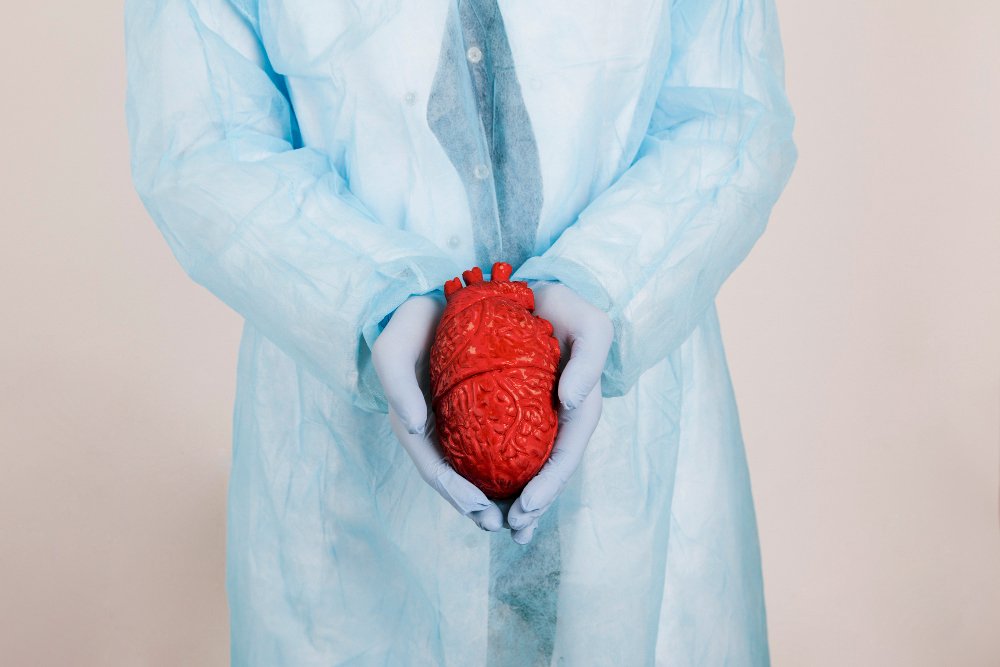Atrial Fibrillation Treatment in Chandigarh
Many humans experience AFib as an unexpected, ugly sensation in their heart racing, but some people face symptoms and are ignorant of their AFib till it’s diagnosed during a physical test. If you’ve got Atrial Fibrillation signs, you must contact with AB Heart Care right away. AB Heart Care has a group of doctors who treat people who have atrial traumatic inflammation. Fix your appointment today.
At AB Heart Care, located in the heart of Chandigarh, you can discover world-class treatment options tailored to Atrial Fibrillation Management. With modern technology and knowledge in cardiovascular surgical procedure, our doctors treating AFib patients via minimally invasive processes and complete care.
What is Atrial Fibrillation?
Atrial fibrillation (AFib) is a common and extreme heart condition characterized by abnormal and frequently fast heartbeats originating from the higher chambers of the heart, referred to as the atria. In AFib, the electric signals that coordinate the heart’s rhythm become disorganized, leading to erratic contractions of the atria. This can result in a fast and uneven heartbeat, which can be felt as palpitations or fluttering in the chest. The disorganized electrical pastime also can impair the heart’s ability to pump blood efficaciously, increasing the risk of blood clots, stroke, and heart failure. Contact with Best Doctors For Atrial Fibrillation Treatment in Chandigarh at AB Heart Care.
AFib can be occasional (paroxysmal), continual, or permanent, depending on the period and frequency of episodes. Symptoms often consist of fatigue, dizziness, shortness of breath, and chest discomfort, but some individuals can also experience no symptoms at all. Consult with our Atrial Fibrillation Doctors in Mohali at AB Heart Care to know more about Atrial Fibrillation.

What Happens During Atrial Fibrillation?
During atrial fibrillation, the electric indicators in the atria become disorganized, ensuing in rapid and abnormal contractions. This irregular rhythm can cause blood to pool in the atria, leading to the formation of blood clots. A blood clot touring from the heart to an artery in the brain causes a stroke.
What are the signs of atrial fibrillation in adults?
Atrial traumatic inflammation can also cause various signs, although a few individuals can be asymptomatic. These signs are given below.
- Pounding or throbbing (pulsating): This is a common sign of atrial traumatic inflammation and can sense like palpitations or an irregular sensation for your chest.
- Shortness of breath: Atrial fibrillation makes it tough for your heart to pump blood effectively, that may cause shortness of breath, particularly for the duration of workout.
- Lightheadedness or dizziness: The abnormal glow and reduce blood flow may make you experience dizzy or lightheaded.
- Fatigue: If you’ve got atrial fibrillation, your heart may not be pumping as well, making you feel tired and vulnerable.
- Symptoms of chest pain or soreness: It can cause chest pain or soreness in a few humans.
Different types of treatments for Atrial Fibrillation Management
Medications are a cornerstone of Atrial Fibrillation Treatment & Management and can be used to control heart rate that is normally very high in this situation inflicting heart palpitations, rhythm, and prevent complications like brain stroke attributable to mind clots.
- Rate Control Medications: These pills assist gradual down the heart rate to a regular rate. Common medicinal drugs consist of beta-blockers (e.g., metoprolol), calcium channel blockers (e.g., diltiazem), and digoxin.
- Rhythm Control Medications: These medicines aim to restore and hold a regular heart rhythm. Antiarrhythmic pills together with amiodarone, flecainide, and sotalol, are typically prescribed by AB Heart Care doctors.
- Anticoagulants (Blood Thinners): To prevent stroke, patients with Afib are often prescribed anticoagulants like warfarin, dabigatran, rivaroxaban, and apixaban. These medications reduce the risk of blood clots forming within the heart.
- Antiplatelet Drugs: In some cases, in particular wherein anticoagulants aren’t appropriate, antiplatelet medicines like aspirin can be used to reduce stroke risk.
- Pacemaker Therapy: It includes the placement of a tool under the skin that monitors heart rate and sends stimulating electrical impulses if the heart rate gradual too much.
- Electrical Cardioversion: The heart is given a managed electric-powered shock to attempt to repair a normal rhythm. The procedure generally takes place in a medical institution, wherein the heart is cautiously monitored.

There are special situations which could cause atrial fibrillation, such as:
- Hypertension (high blood stress)
- artery disease
- Heart valve disorder
- After a heart surgical procedure
- Chronic lung disease
- Heart failure
- Cardiomyopathy
- Congenital heart disease
- Pulmonary embolism
- Hyperthyroidism
- Pericarditis
- Viral contamination
How Is Atrial Fibrillation Diagnosed?
Atrial Fibrillation Treatment analysis involves a combination of physical tests and clinical assessment of family health history. The cardiologist asks about your symptoms, depth of physical activities, diet plan, records of any medical situation associated with the heart, family health records, and so on. To further verify cardiac problems, our doctor at AB Heart Care can also recommend the following medical tests:
Electrocardiogram (EKG or ECG)
It is one of the most common and quickest diagnostic tools to measure the heart’s electrical system.
Echocardiogram (Echo)
Under Best Atrial Fibrillation Treatment in Chandigarh, this test uses ultrasound waves to create images of the heart that help the cardiologist find structural abnormalities.
Blood tests
This test is suggested to check for underlying situations such as thyroid disease or infections.
Cardiac MRI
A Cardiac MRI gives certain imaging of the heart’s shape and features.

Take Control of Your Heart Health with Atrial Fibrillation Surgery
With AB Heart Care, best clinic for Atrial Fibrillation Treatment & Management in Chandigarh, patients have get access to quality care in atrial fibrillation treatment, includes atrial fibrillation heart surgery. With a commitment to patient care and surgical excellence, AB Heart Care and his team are ready to help you take manage of your heart health.
If you’re looking for Atrial Fibrillation Doctors in Tricity, contact us today to schedule a consultation and start your journey towards a more fit heart.

